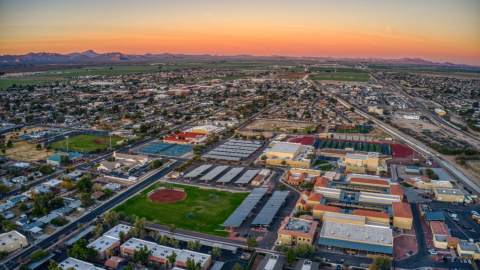Coworking & Flexible Office Space Outlook (2023)
In a recent installment of the end-of-year outlook series, CommercialSearch noted that, since the start of the COVID-19 pandemic, the demand for traditional office space had decreased notably in most major U.S. markets. At the same time, interest in coworking space has picked up the slack in terms of accommodating the newest hot commodity — flexibility.
Following a reorganization by many companies from traditional workspace arrangements to hybrid in-office and remote participation across their workforce, flexibility has become a highly important factor in lease term negotiations.
In addition to flexibility, the flight-to-quality wave toward modern office properties in recent years has also been raising the bar on tenant standards — not only for the spaces they’ll consider taking under lease, but also for the buildings that incorporate those spaces. In this respect, experts interviewed for the ULI-PWC report on emerging office trends for 2023 agreed that the national office stock was overdue for an optimization (the transformation, removal or repurposing of some of the existing office stock), a great deal of which was originally built in the 1980s.
Accordingly, as an overhaul is likely in the cards for office spaces both big and small across the top markets in the U.S., there’s even more opportunity to incorporate the shared and coworking space model in lieu of traditional offices going forward. In fact, more than 59% of respondents interviewed by CBRE for the firm’s Spring 2022 U.S. Office Occupier Sentiment Survey indicated that they planned to include a sizeable to very sizeable segment of flexible office space in their commercial portfolios in the future.
Currently, the expansion of the coworking sector has been fueled significantly by property owners, brokers, managers, and investors creating their own makeshift coworking divisions or forming strategic partnerships with established coworking operators to create flexible spaces that fill occupancy gaps across their portfolios. Plus, the sizeable influx of corporate workers into flexible office spaces has also spurred some acceleration in the coworking tech sector. For instance, WeWork partnered with Yardi to launch WeWork Workplace, a software solution that allows individual office workers to reserve space, get oriented through interactive floor maps, manage visitor access, and automate overflow management.
While there is some speculation about the lasting quality of the accelerated recent growth of the coworking sector, industry veterans believe that flexible space is expanding at a sustainable rate.
“It was white hot — perhaps even overheated — in the first half of the year,” said Industrious CEO, Jamie Hodari. “But, right now, demand is growing at a high, yet sustainable rate as many small businesses get sick of only working from home and many large companies are exiting their large, long-term leased space and looking for more appropriately sized options.”
Looking for coworking space near you or flexible space options for expanding your business footprint on your terms? Select any location from the list of popular markets linked below to check out the local listings!










